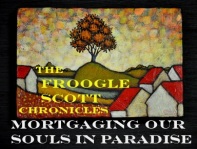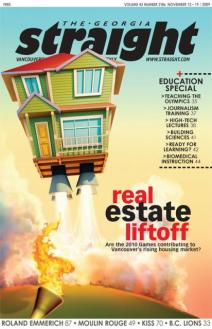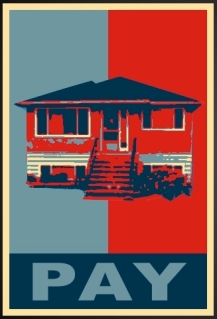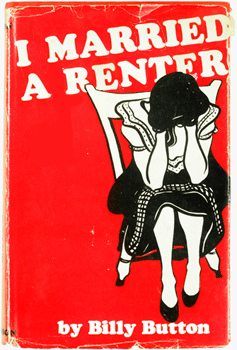[see ‘Policies On Housing’ – The Positions Of Local Entities On The Challenges Facing Vancouver Housing‘ for an introduction/rationale for this series]
—
NSV (‘Neighbourhoods for a Sustainable Vancouver’)
From their website, nsvancouver.ca:
“Neighbourhoods for a Sustainable Vancouver (NSV) is an organization made up of individual electors from neighbourhoods across Vancouver, of which many individuals are also part of neighbourhood groups whose views help to inform NSV Principles and Policies. NSV is endorsing candidates on the ballot in the upcoming 2011 civic election.
NSV is offering an alternative to Vision Vancouver and the NPA who are both effectively the same on city planning and development issues since they are heavily funded by the development industry. Regulators of land use policy, such as Vancouver’s City Council, should not be funded by those they regulate. Excessive amounts of money should not be raised or required for local elections.
NSV supports sustainable development in a scale, pace and form that protects heritage buildings, affordable rental housing and neighbourhood character, implemented through genuine grassroots neighbourhood-based planning processes. Affordable and social housing should also be a priority and designed to perform well within the scale and character of each neighbourhood. We want our city to be ecologically, socially, and financially sustainable.”
—
Here is ‘jesse’ on NSV’s policy on housing [Many thanks, jesse. -ed.]:
“The platform is rather detailed. It can be found here, [and archived here].
I’ll highlight a few policies that stood out to me, of which I have concerns:
“Ensure that planning and development are rooted in neighbourhood-based processes that have established community support and enhance public trust. Such processes should be genuine cooperative efforts between the City and the local community and should demonstrate substantial local support for any outcome”
This statement recurs in other policies throughout their document. Here NSV is talking about existing neighbourhood groups being more actively involved in the planning process, to the point they are given a near veto over land use planning. The issue here is that many city-wide initiatives and burdens could be nixed if such a policy is enacted. Imagine trying to get approval for treatment centres, halfway houses, or other subsidized housing in certain neighbourhoods, or even provide “medium income” housing throughout the city, from east to west. Further, density increases have been slow to materialize in certain west side neighbourhoods despite, based on price signals, a large number of people desiring to live there.
“Strive to end homelessness and poverty, and to address housing affordability more generally.”
A more general approach to housing affordability is good but it’s unclear what this means. Is “affordability” regarding ownership or just renting?
“Estimate future capacity needs based on existing population and realistic transparent projections, with raw data available to the public for ready independent review.”
Sounds good. Projections, though, can become self-fulfilling.
“Minimize rezonings that would divert development from rapid transit serving centres and high growth areas such as the Downtown District”
Uh yeah. Why rezone areas that don’t have transit? I disagree; the concept is to increase transit corridors to react to density increases, not the other way round. JMHO.
“Do not increase zoning capacity beyond what is required to realistically meet anticipated growth, so that development is directed where it should be implemented in the greatest public interest. (If the whole city is upzoned, then profitability rather than transit access may determine development, with increased orientation to automobile transportation.)”
This is a bit confusing; the “greatest public interest” is a weasel phrase. More on that below.
“Reduce/avoid regulatory disincentives to renovation of existing older character buildings to encourage adaptive reuse, which retains the affordability and embodied energy of existing buildings”
Noble, but it’s hard to see how this will align with planned density increases. Density looks to increase in specific areas, and produce larger disparity over time with this policy. Not that this is good or bad, but the conclusions seem obvious to me.
“Engage the public and other levels of government to explore and enact policies to constrain inflation of residential property values due to flipping, money laundering, and excessive foreign investment.”
This will be seen as noble, and populist, but I think vreaa and I agree this is missing the point, that there is a chronic land price bubble that extends beyond flipping, illegal activities, and foreign investors. While policies like these, if ham-fisted enough, may divert some “hot money” away, it misses the broader point, that land prices are woefully disconnected from underlying fundamentals and it’s mostly locals who are supporting valuations. [Agreed. – vreaa]
—
jesse adds:
“I was going to do a technical breakdown of NSV platforms but its policy is detailed enough, people can peruse it for themselves. Instead I thought I’d get on the virtual soapbox and highlight some concerns I have with their platform. I do think it’s good that it is a detailed policy. I’ve concentrated on the specific policies with which I have biggest issue. Other policies of NSV may or may not be good ideas but I support them being debated openly and on that front they seem to be adding to debate, and steering towards discussing broad housing policy as an election issue. I hope other parties and candidates can issue rebuttals to NSV’s policies or state that they agree with them.
Vancouver has a choice to make regarding increasing its density. One way is to concentrate density into areas whose existing residents are more willing to accept these increases — or cannot manage a careful, politically astute, time-heavy, media-savvy, and vocal campaign — but I also know that some neighbourhoods are much less organized than others and planning land use for the overall city “public good” produces entrenched interests that make living close to work more and more difficult as time goes on. Indeed if we look at Vancouver’s history, in certain neighbourhoods like the West End, Kits, Fairview, and more recently Mt. Pleasant, Cambie, and Main St. south of False Creek, we can see density slowly encroaching via a formal rezoning basis. This will start “creeping” outwards with more and more pressure over time.
Other neighbourhoods, mostly on the east side, have increased density through zoning for basement suites, and more recently the allowance of lane way housing city-wide. These efforts have increased dwelling capacity formally, and informally houses are adding suites more than the City wants to admit in terms of enforcement. (It has acknowledged illegal suites’ existence in working reports.) You know that I think that the City practice of “turning a blind eye” to illegal basement suites is a disingenuous way of increasing density in neighbourhoods. These suites have started to pop up on the west side too, though their instigation is more noticeable and prone to neighbours issuing complaints. It is my view this is not a good way of increasing density, producing a bifurcation of neighbourhood incomes and rendering ownership near impossible. By disallowing full-ownership density increases, it may actually increase, not decrease, speculative activity in low-density areas.
So density is coming, adding neighbourhood associations into the mix will make this process more difficult and, based on previous experience, forces density into areas where the populace doesn’t really want to be. Again, look at price signals: a great many people want to live, but are unwilling to buy, on the west side.
The City, as a whole, has the ability to decide whether protecting existing neighbourhood character by keeping density low is in the “public interest” of the city overall. I think keeping low density is going to cause more strains going forward, and increasing into medium-density similar to European or other cosmopolitan locales, as Kits/Fairview/etc. have already embarked on, is only a matter of time. At this point, given stratospheric land values, might as well hit the relief valve sooner rather than later. This is within the bounds of what the city is allowed to do and likely exactly at odds with NSV’s proposals. Increasing density in a sustainable way across the city won’t be popular, sure, but people working in, say, UBC who need to commute for close to an hour or more every working day, would likely welcome such density increases closer to their places of work. Density increases can be had by thoughtful rezonings either into multiplex or row housing (I dismiss this is not possible) of larger lots. Creative architecture can allow proper blending into neighbourhoods.
While I support more comprehensive concentration on housing policy beyond the serious problems in affordability for low-income families, which what NSV’s platform is attempting to do, I do not support the concept that Vancouver can maintain its “character”; rather it can only delay it and this will cause longer-term stresses for affordability, livability, and environmental sustainability of an extremely desirable chunk of rock. Perhaps other contributors can argue the other side, as to why certain NSV policy proposals are a good thing to pursue.”
—

































NSV has a few things “right”, IMO: campaigns “should not be funded by those they regulate” calls out an established paradigm in city politics, and not just Vancouver’s.
I hope my criticisms don’t come off as a complete rebuking of NSV. I’m just glad I had something to rebuke, instead of platitudes or simply no stated policy at all, other than the status quo!
Neighbourhood planning has a lot of good things going for it, but I was disappointed NSV didn’t acknowledge the dirty underside, namely organized and connected neighbourhood associations can run ragged over those who don’t bring their “A” game. I didn’t use the word “NIMBY” but the NSV policies smell similar. Still I get where they’re coming from; it’s important the city planners stay connected to the communities — not just the neighbourhood associations.
Well this sounds all nice and good but involving neighborhood associations? This kind of policy just screams NIMBYism. One good effects of city council in developer’s pocket is that sometimes developers will run roughshod over the neighborhood associations/protests to bring in needed density increases – the rare case where developer greed coincides with public good.
Also why did NSV leave out COPE?? Aren’t they also a city party here?
WIth regard to UBC, it can solve it’s housing issue very easily if it actually cared. It can build lots of faculty/staff housing on its own land and sell/rent out at cost + slim profit. However I guess that’s not as important or cool as making lots of $$.
Lastly, I get the vibe that Vancouverites have this feeling that increasing density is basically letting in bums/leeches from the suburbs to live in Vancouver for free and will ruin Vancouver.
“basically letting in bums/leeches from the suburbs”
Indeed letting in the “others” would not be in the best interests of high society. Meh, everyone in the city gets a vote concerning the direction of the city. Maybe certain enclaves can petition the province to form their own city if they don’t like sharing the polling stations with the proles.
Just a thought here, but if I owned a house around UBC, I don’t know how eager I would be to have my neighbourhood density increased for the bennefit of people who currently live in other districts. This in mind…how many Burnaby or Surrey or Richmond residents will be voting in the next Vancouver election? Cause if it is only Vancouver residents voting, I doubt the concerns of the comuting populace will be taken into account.
“if it is only Vancouver residents voting, I doubt the concerns of the comuting populace will be taken into account.”
About 50% of the populace rents and my bet is a few non-renters aren’t planning on staying in their current residences for a prolonged period.
I’ve lived in Dunbar on the west side all my life. I grew up there when it was affordable to buy a house there. My parents paid around $200,000 for a house that’s now valued at over 1.5 million. In my case increased neighbourhood density means I can stay in this neighbourhood. We’re now building a laneway house in my parent’s back yard. My husband and I have a modest but what should be considered decent combined income, only it would never get us a home in Vancouver. We’d have to move out to Burnaby or even further away from our friends and family. Rising prices are driving out young people who were once local to the area but can’t afford to stay.
It’s not fair and also very exclusive to assume that “people who currently live in other districts” don’t deserve to live in the west side. I could be one of those people living out there now if I wasn’t as fortunate to have a family willing to share their land with me.
There are of course all sorts of people who live in other municipalities that perhaps have never lived west of Boundary road, but excluding them is like making Vancouver a gated community. Do we really want Vancouver to be dominated by the upper class? Where’s the diversity in that? Dunbar is already getting overrun by trophy wives/yummy mummies with a huge sense of entitlement. Let’s bring in the people who know what it’s like to earn their life style, not have it handed to them. We need balance and Vancouver’s west side is going higher and higher up in to the clouds at this rate.
Laneway housing is a great way to increase density without compromising the character of a neighbourhood. When I spent time in Tokyo I was very impressed with how a densely packed city could have so much character in its residential areas. We can do it too.
Since single family neighbourhoods are difficult to develop at higher densities (land assembly, nimby’s) I would guess that most developers have invested in land elsewhere. Existing nimby single family owners and developers may share more interest than the folks at NSV may realize… or admit to.
In case it’s helpful — for some months, I served on a neighbourhood association on the West Side (I was asked to join), in Dunbar. It may surprise people to hear that I would estimate at least half of the residents I met on that committee were in favour of such densification measures as laneway housing or legal basement suites. Furthermore, many also felt that the social housing planned for 16th and Dunbar was good. So VREAA readers need not necessarily assume that these associations are made up of Vancouverites who are categorically against densification and don’t care about affordable housing. Members of other associations I’ve met from other areas of the city have also not been NIMBYists, but hard workers in the effort to make Vancouver a better place for all its residents. Moreover, some of the protests against the City’s plans for densification have been made on the basis of associations’ feeling that the City did not in fact know enough about the neighbourhoods they were proposing to densify or were giving away too much to developers without promising increased services for an increased population (e.g. larger community centers, etc.). Finally, a lot of the people I met who were upset about proposed densification sincerely opposed City and developer plans for progressive reasons: the buildings proposed would have been, in one committee member’s words, “just more million-dollar shoeboxes”: they were being planned for extremely wealthy people who would each have two parking stalls, for example (this was the case with the proposed Emaar development at Balaclava and 41st).
So while NIMBYism in Vancouver definitely exists, I’d like to say respectfully that I think it’s not quite fair to suggest that that’s all those neighbourhood associations are about.
“I think it’s not quite fair to suggest that that’s all those neighbourhood associations are about”
Good points (the diatribe in this post is mostly mine, not vreaa’s).
My callout here is that I’ve seen certain neighbourhood associations being underrepresented or dysfunctional and it leads to “squeaky wheel” syndrome, sometimes not necessarily in the best interests of a large portion of current or future residents, or the city at large. I saw nothing explicit in the policies that acknowledge how “greater good” policies can be managed through greater neighbourhood, and neighbourhood association, involvement. (There are those I know who have felt sidelined or disenfranchised by certain neighbourhood groups and it’s important to involve them no matter what the history; here is where the City has a duty to dig a bit deeper.) To state that your lower-density neighbourhood has people who welcome more density is nice but this isn’t a guarantee. In fact NSV’s policies are such that if a neighbourhood, even in part or in the minority, wants to remain low-density, it will be difficult to increase density. It also went as far to state that certain neigbhourhoods should not have their densities increased as fast as is currently the case.
I have concentrated mostly on the issue of density increases in this critique. First this does not mean that increasing density in all parts of the city is THE right solution to the city’s high land prices. Second I am questioning the wisdom of producing certain neighbourhoods that will be loath to accept any density increases — which is a plausible result of implementing these policies — when the city is increasing in density at a fair clip, in some cases out of the control of what the city can hope to manage/enforce. There are stratification issues to deal with when allowing large land areas to remain low density and, in certain areas of the city, it will be near impossible for some to live close to where they work. From that point of view, maintaining low density causes more stress on the city than it otherwise would.
Bravo!
Re: Stratification issues [and so much more]…
The last time I shouted that one, it was in Vienna. I think Herbert was conducting… I may have been dressed slightly bourgeois [but I was ‘working’, after all – everyone should be so lucky]…
Jesse, I’m very much with you on the need for affordable densification in general on the West Side. You’re also right that there will definitely be some strong opposition to any densification. Dunbar’s no longer my neighbourhood, but with prices there having gone the way they’ve gone, I’m hoping that even hardcore anti-densification residents will eventually see the need for and the wisdom of densification, and that there can be creative and satisfyingly fair solutions.
I don’t know why I sound so optimistic here given the way things in the city have gone so far wrt housing….
Thanks again for alerting us all about the NSV’s policies and for your very thoughtful and useful critiques.
” I may have been dressed slightly bourgeois”
In Vancouver you aren’t of proper upbringing if your toe clips don’t clink as you walk into “work” in the morning.
I believe the term nimby’s is just used by those who wish to discredit people who have genuine concerns about the City’s so-called planning and land development activities. This City doesn’t have a planning department – it has a real estate development department. Both “ecodensity” and Gregor’s “greenest City” mantra were the same – an excuse to justify imposing inappropriate developments everywhere they can around the City. Vancouver’s geography and climate do not support the type of high density development we find in Yaletown being transported to all other areas of the City. Unlike the downtown area, other areas of the City actually have green infrastructure – hills, streams and wetlands that provide huge environmental benefits and that any real environmentalist would want protected.
An example of their folly can be seen at the corner of 16th and Granville. Although this area was supposedly protected by the ODP as the First Shaughnessy Heritage district, the City allowed this rezoning and the consequent destruction of the bed and banks of a stream that came down that hill along McRae. The remnants of the stream bed can be seen just by looking at that new development – its rocks and boulders were used to build the walls of that new development. So the water that used to come down that stream will now be rerouted somewhere else – or will end up flooding the new homes built on that site. This is not environmentally sound planning, no matter how many “green buildings” are built on that site.
Another example of the City’s folly can be seen in the mass rezoning of Cambie Street. This was totally unnecessary as the City already has the zoned capacity to handle increases in population for at least the next 10 years. The whole reason the Canada line was put underground was to save the Cambie heritage boulevard; now the well built homes along that street will be demolished for more junky condos – none of which will preserve the natural environment.
Turning the City into one giant condo complex will result in huge public costs for building and maintaining the infrastructure (drainage, etc.) necessary to replace the green infrastructure provided by the City’s own geography.
There are many ways to densify Vancouver, but a developer driven process that does not respect the natural environment is not in anyone’s best interest.
P.S. Thanks very much, Jesse, VREAA host and others, for providing so much good information here about various political parties’ positions on housing.
One more thing to remember about the positive role a neighbourhood association may play: members may be the last line of defense against the destruction of existing heritage or character housing stock. I see absolutely no other entity or group in the City that is as concerned about this issue. One organization I can think of that is supposed to be a watchdog and advocacy group seems either chronically understaffed or insufficiently galvanized or both, imho.
Georgia Strait has a few:
http://www.straight.com/article-502626/vancouver/sandy-garossino-vancouver-weve-got-housing-problem
http://www.straight.com/article-502646/vancouver/adriane-carr-there-are-smarter-ways-vancouver-grow
http://www.straight.com/article-502701/vancouver/joe-carangi-bold-leadership-will-make-vancouver-great-again
2 of the 3 mention housing in more than passing, one in spades, as the kibitzers like to say. Guess which one.